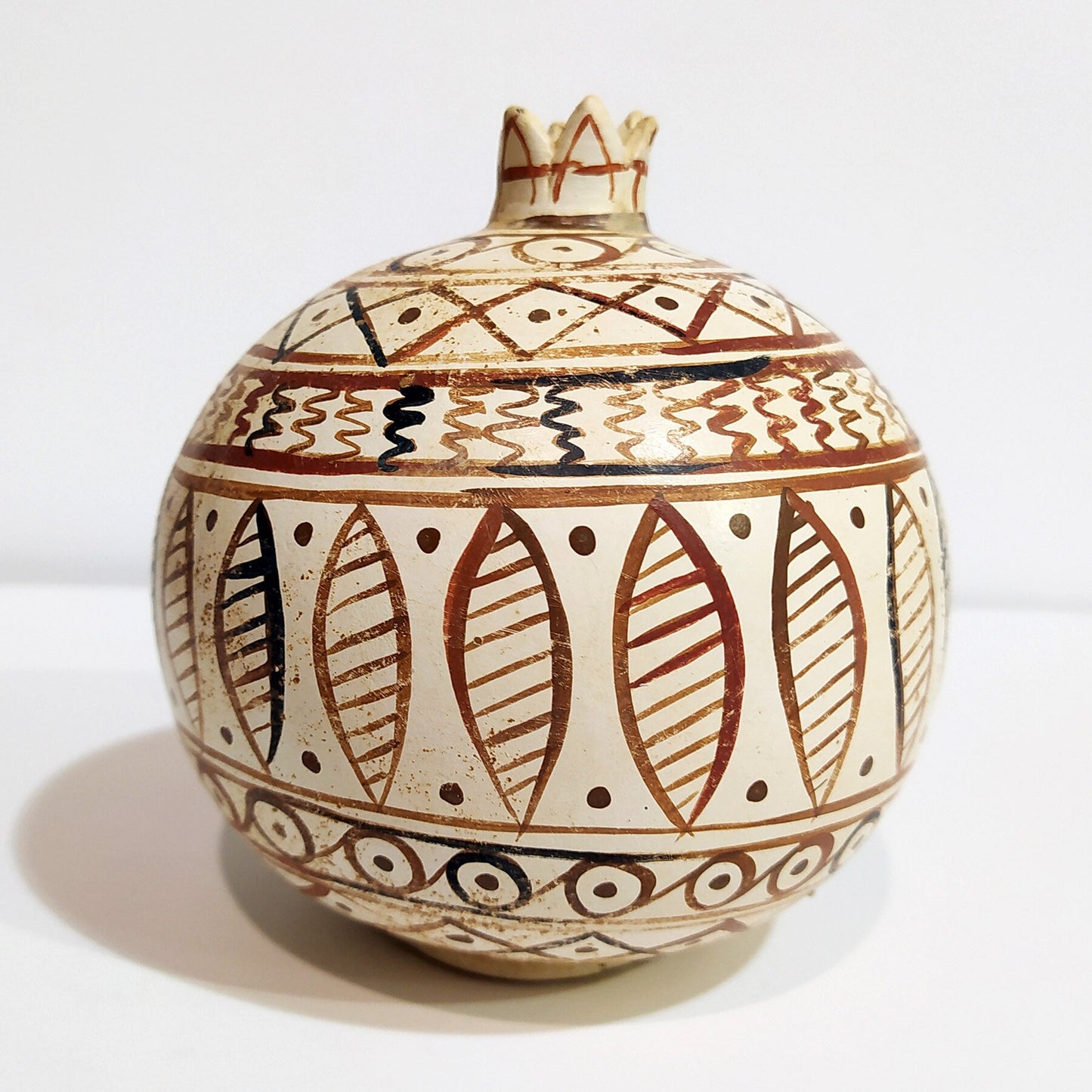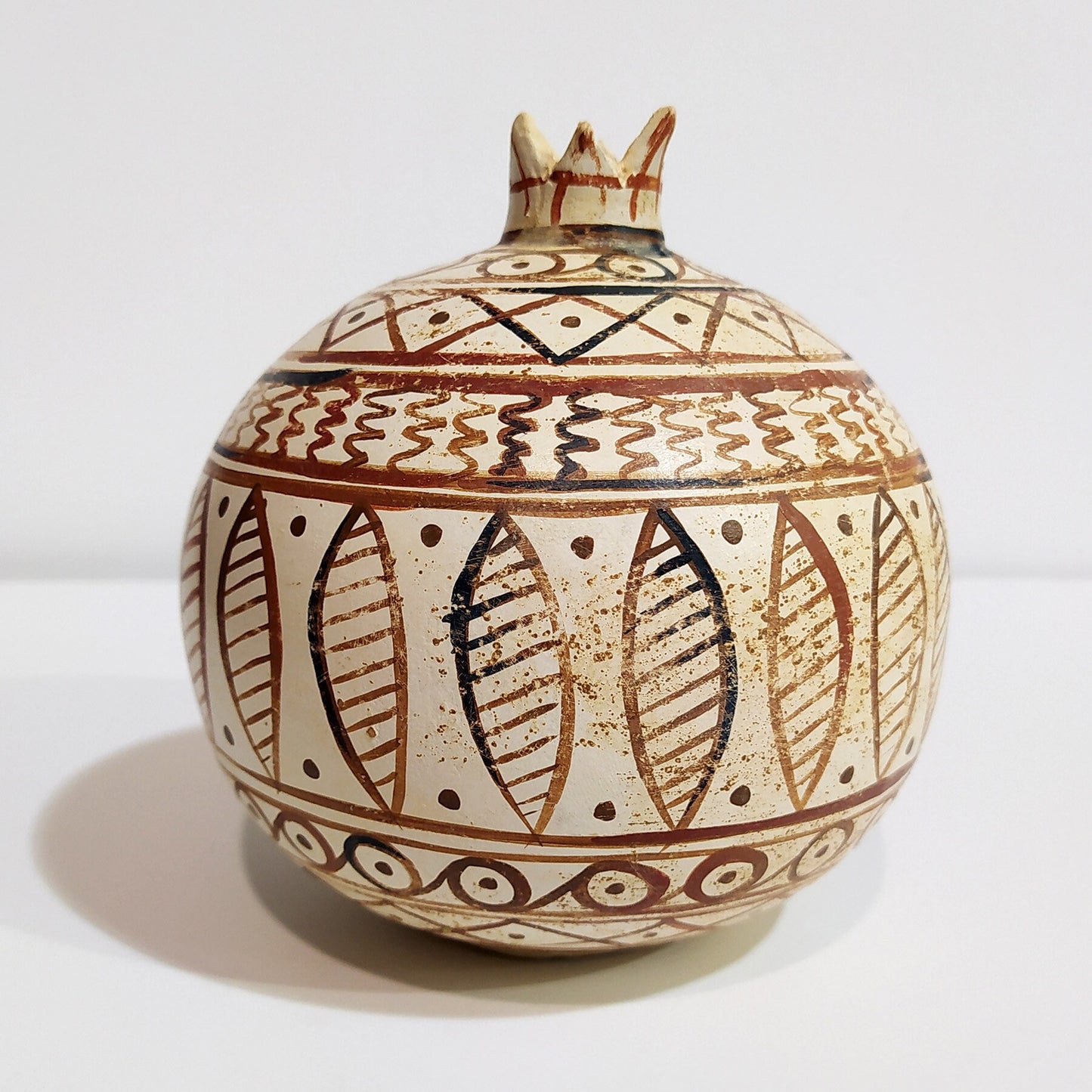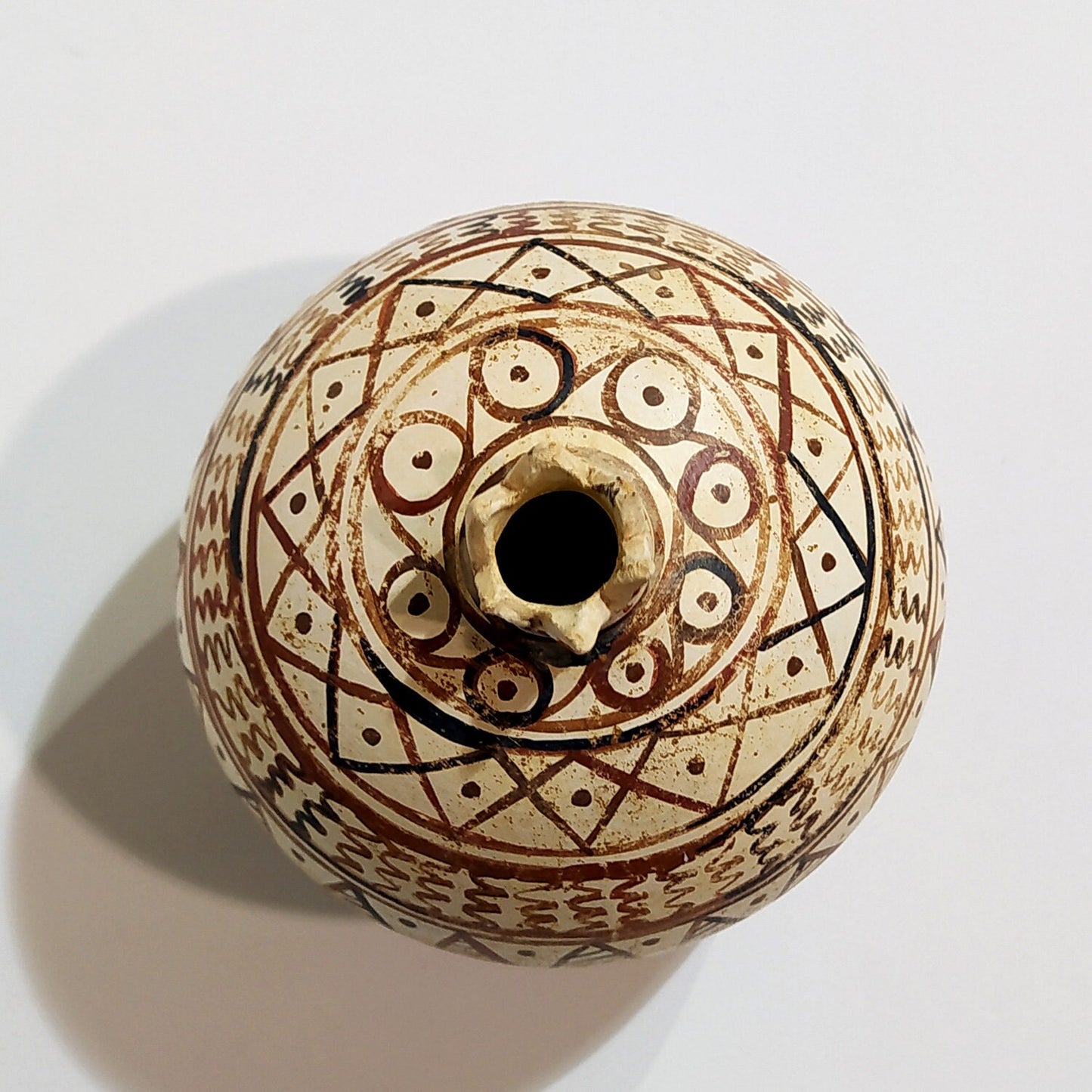Gallery Demeter
Pomegranate - Symbol of abundance and of the indissolubility of marriage - 600 BC - Kerameikos Museum - Reproduction - Ceramic Artifact
Pomegranate - Symbol of abundance and of the indissolubility of marriage - 600 BC - Kerameikos Museum - Reproduction - Ceramic Artifact
Couldn't load pickup availability
Details:
Condition: New, Handmade in Greece.
Height: 14 cm - 5,5 inches
Width: 11 cm - 4,3 inches
Length: 11 cm - 4,3 inches
Weight: 370 g
Perhaps the most well-known myth of the Pomegranate is that of Persephone, the young goddess who was abducted by the god Hades to be his bride in the Underworld.
Some say that the goddess was picking wildflowers, most notably the Narcissus, when Hades came upon her in a field and stole her away. Most accounts say that Persephone was taken against her will, a young maiden caught unaware by the god of the Underworld.
When Persephone’s mother, the goddess Demeter, discovered that her daughter was missing, Demeter scoured the earth looking for her. Upon hearing that her daughter had been taken to the Underworld, she begged Zeus to intervene and return her daughter to the living world. Zeus agreed to help return Persephone, as long as Persephone had not eaten any fruit that grows in the Underworld.
But Persephone had eaten a single seed from a Pomegranate tree that grew in Hades’s orchard. So she was bound to spend part of the year in the Underworld with Hades, and was allowed only to spend part of the year above ground with her mother.
Like a spring bulb that shoots forth new growth and then retreats into the earth again, Persephone returned to the earth in Spring and then retreated to the Underworld in Winter in a never-ending cycle. Demeter, being a goddess of grains and overseeing the fertility of the land, mourns her daughter’s absence each Winter. This explains the seasons: when Persephone returns to the Underworld, Demeter turns the earth barren and nothing grows until Persephone’s return in the Spring.
The Pomegranate thus became a symbol of mortality, fertility, and the Underworld. As the fruit is ripe in late autumn, it marks the return of Persephone to the Underworld and serves as a reminder of the inevitability of Winter death. But the Pomegranate’s multitude of blood-red seeds also symbolize the life-giving blood that springs forth from the darkness in Spring.
Askalaphos was an Underworld daemon and orchardist of Hades’s pomegranate groves. He informed Hades that Persephone had eaten a seed from the fruit, thus binding Persephone to return to the Underworld each Winter. Demeter, in rage for his tattling on Persephone, buried him under a rock in the Underworld. Herakles later released him, but Demeter then transformed him into a screech owl, which became a sacred bird of Hades and messenger of ill omen.
Side, whose name in Boeotia meant Pomegranate, was the wife of the Titan Orion. Boasting that she was more beautiful than the goddess Hera, Hera responded by banishing her to Hades and possibly transforming her into a Pomegranate tree. It’s interesting to note that the constellation of Orion returns to visibility in the night sky when the Pomegranate fruit begins to form and ripen.
As the blood-red seeds and juice are potent symbols of fertility and menstruation, the fruit also came to be associated with the goddess of marriage, Hera, and the goddess of love and sensuality, Aphrodite.
It is also interesting to note the similarity in shape of the Pomegranate fruit to the Poppy capsule, another important herb of chthonic significance and life-death symbolism to the ancient Greeks.
Smashing a pomegranate on New Year’s Day is an ancient Greek custom that continues to this day as the red-colored, nutritious fruit is considered a symbol of life and good fortune.
Ancient Greeks believed that the pomegranate’s ruby-like arils, or seeds, symbolized abundance, perhaps because of their quantity. They also represent fertility, eternity, and good fortune.
AGAIN 419A ΡΟΔΙ ΜΕΓΑΛΟ - 27





